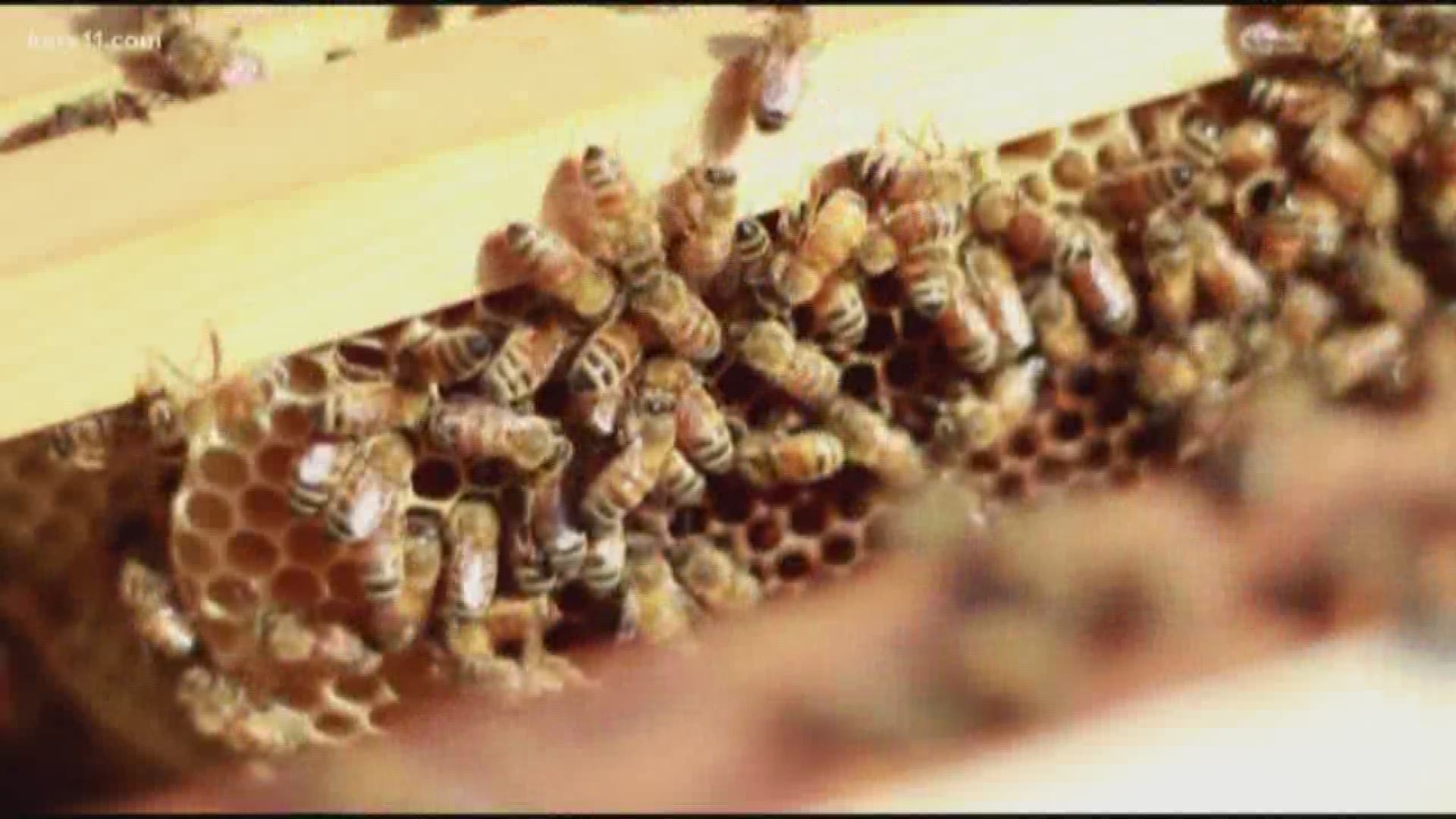MINNEAPOLIS — The spring growing season is here, time for bees and butterflies to feast on your flowers but are those flowers safe?
Many online say the chemicals that protect your flowers are also killing the bees.
We set out to Verify.
THE QUESTION:
A viral Facebook photo claims flowers sold in stores are killing bees and other pollinators.
The post shows a picture of some flowers sold at a Home Depot store with a label that says the flowers have been treated with “neonicotinoids,” a family of pesticides the post claims are the number one killer of bees.
Is this true? Are the plants and flowers in our yards killing the bees?
THE ANSWER:
Raj Mann with the Minnesota Department of Agriculture is helping us Verify some of these claims.
He specializes in pesticides.
“These neonicotinoids are absorbed in the plant tissue and that includes pollen and nectar,” Mann says.
“The insect pollinators like honey bees feed on that pollen and nectar and they may be exposed to these neonicotinoids. And yes, they may harm those bees.”
So it's Verified, neonicotinoids can be harmful to pollinators like bees if they're not used correctly.
Next, the post claims neonicotinoids are the 'number one' reason bees are dying off.
Mann says we can’t Verify that, because there are several things killing the bees, and it’s impossible to know which one is the worst.
Lastly, does Home Depot sell flowers treated with neonicotinoids, like the post claims? Well, the company used to.
The original viral Facebook post is more than four years old.
At that time Home Depot did sell flowers and other plants treated with neonicotinoids, but since then the company has decided to phase them out.
The company sent this statement:
“The Home Depot is one of the few retailers that labels plants treated with neonicotinoids so customers can choose for themselves. Through partnerships with our suppliers, we’ve made tremendous progress on removing neonic from our plants and they are now 98 percent free of neonicotinoids. However, there are states that require some plants be treated with neonic.”
The remaining two percent the company says are products made in states that require neonics to prevent the spread of invasive pests.
So it's false, the company is no longer widely selling flowers with neonicotinoids.
But many companies are.
Home Depot chooses to label its plants treated with neonics, but since they're EPA approved, Mann says companies aren't required to label them.
Consumers may not know whether the plants they’re buying are treated with neonicotinoids or not.
Mann recommends doing a little research before you buy.“They should be used judiciously, only when needed, and properly as per the label instructions,” Mann says.
WHAT WE FOUND:
The EPA currently allows neonicotinoids. The agency says they’re important pesticides for farmers who want to protect their crops and homeowners who want to protect their lawns and plants.
But the EPA acknowledges they can be harmful to pollinators, so the agency has issued strong recommendations on how to use them correctly.
In 2018 the union voted to ban three types of neonicotinoids.

